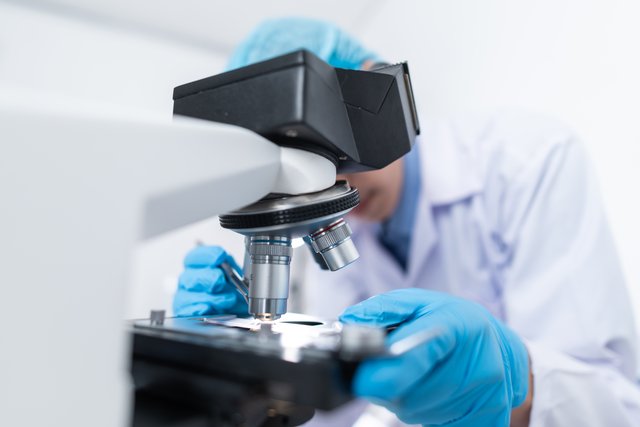IS THERE A HIGH DEMAND FOR BIOENGINEERING IN THE FUTURE?

The field of bio-engineering is one of the hottest right now. It is a fusion between healthcare and engineering. These two fields are the best when it comes to salary and career growth. A bioengineer applies their engineering knowledge to come up with solutions for healthcare institutions and usually looks after the design and development of medical-based products. If you want to get into this field, you would want to know what type of jobs are available for you out there. You might be asking, is there a high demand for bio-engineers in the future. If you want the answer to that question, then you have come to the right place.
Today, in this article, we will share the types of jobs that bio-engineers can apply to create a successful career.
QUALITY ENGINEER
Regular checking is one of the easiest ways you can ensure that medical equipment functions efficiently. It is crucial to inspect this equipment regularly. As you check your machines, you will be able to detect any signs that might show you damage on them. Detection at such an early stage can avoid further damage from taking place.
If you do not know how to check these machines, getting professional maintenance help is a good idea. Not everyone can do checkups on such sophisticated machinery. There have been many cases when someone tried to inspect a machine and ended up breaking it. In this situation, bioengineers can help out.
For maintaining all medical, you can look for some professionals who have bioengineering experience, usually working for a variety of pharmaceutical manufacturers, engineering, life sciences firms, and many more. Even though enrolling in an online Master of Science and Engineering program is the best idea to pursue your career in the medical engineering field. For more information about bioengineering, click here and set yourself up for success.
BIOMATERIALS ENGINEER
A biomaterials professional usually looks after designing and developing tools and comes up with solutions that are safe for the human body. These solutions and tools consist of implants that a person may require to treat various medical conditions. An example of such a product is a pacemaker which doctors use to solve heart issues. For these implants to be safe, it needs to consist of materials that are non-carcinogenic and non-toxic.
Furthermore, these materials should also be structurally sound so they can last a long time and are inert and chemically stable. As people get old and their body parts lose their function, they will need help to get better in the form of products that bioengineers develop. People who have a degree in bioengineering can apply for the position to become biomaterial professionals. It is a job that pays well.
ORTHOPEDIC BIOENIGEER
The field of orthopedic bioengineering requires an individual to help develop solutions that deal with human body parts such as bones, ligaments, joints, and muscles. These solutions can include products that assist human beings with their motor skills. The products that an orthopedic bioengineer develops work in tandem with the surrounding tissues of any joint or bone. In some cases, bioengineers also create products that replace muscles, bones, ligaments, and joints entirely. For example, orthopedic bioengineers help improve prosthetics limbs for war veterans who lost theirs in the line of duty. It is a subfield of bioengineering that pays very well. Hospitals and community centers that take care of such people without limbs hire orthopedic engineers.
BIOMECHANICS ENGINEER
The field of biomechanical engineering deals with the development of products that aid with movements inside a human body. Individuals who specialize in biomechanical engineering focus on developing products that help with a person’s inner body movements, such as the flow of blood to the heart. For example, an artificial heart valve is a product that a biomechanics engineer provides his or her expertise to develop. Usually, medical research firms hire biomechanics engineers as they need to come up with new ideas to help a human’s body perform its inner functions adequately and for a long time.
MEDICAL MACHINERY TRAINER
Due to the lack of operator training, machines can experience wear and tear, injuries, and even equipment failure in some cases. Providing proper training to your employees will ensure that your machinery works within its operating limits. Ensure that all your employees know how to properly handle the machines, emergency plans, and the safety precautions when operating such machinery.
A good idea would be to bring in a certified machine operator or a bioengineer to provide lessons to employees that do not have enough knowledge about the machines present inside your hospital or clinic. However, it should not be a one-off thing. Try hosting these training lessons once a week to ensure that your employees do not forget about the steps that go into operating medical equipment. An example of a medical equipment trainer would be an x-ray machine operator or an MRI machine operator.
THE FINAL WORDS
As you can see above, there is no shortage of jobs in the field of bioengineering. No matter what bioengineering subfield you specialize in, healthcare institutions will always require a bioengineer’s help to ensure that they give the best possible treatment to their patients. The jobs available to you, if you complete a bioengineering degree, are so vast that you will find one with ease. Today, we have shared with you some jobs that you can apply for if you hold a degree in bioengineering. So, we hope to answer the question of whether there is a high demand for bioengineering in the future.

